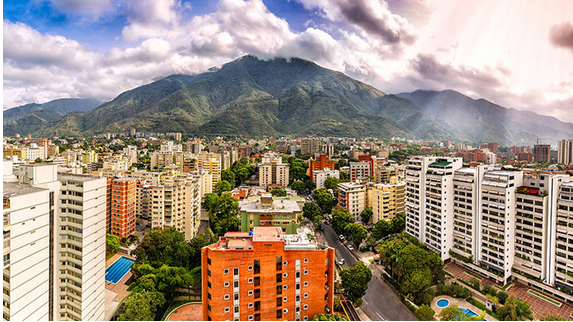Venezuela embodies the best and worst potential of blockchain technology. While the Maduro regime uses the Petro coin to fund authoritarian oppression and combat hyperinflation, crypto solutions give people a potential path to economic freedom.
Daily life in Venezuela begins and ends with one question: What is my money worth today?
Venezuela has the world’s worst inflation rate at more than 40,000 percent annually and rising, according to John’s Hopkins University. The country’s almost worthless bolivar currency is breaking deli scales and credit card readers as the more than 30 million people of Venezuela struggle to buy basic necessities in a starving economy. Citizens are trapped in an ever-worsening cycle of stagnant income and empty store shelves, their money worth less each day. All the while, the authoritarian government of President Nicolás Maduro maintains a tight grip on power through propaganda, strongman tactics, and increasingly desperate economic ploys.
Venezuela’s economic crisis has triggered mass immigration to neighboring Colombia and other nearby countries. For those still living under the Maduro regime, often the only way to get by is to find creative means to skirt the government’s strict economic policies, which selectively control the country’s food supply for political ends.
Many Venezuelans make ends with money sent by family and friends from abroad and by trading for goods and US dollars on the country’s widespread black market. But they—and the Maduro government—are also turning to cryptocurrency as a potential solution.
A host of practical challenges hinder widespread use of Bitcoin and other cryptocurrencies in Venezuela in lieu of paper currency. But over the past few years, many Venezuelans have embraced the decentralized, censorship-resistant technology as a means of transferring and storing money without being slapped with hefty international transaction fees. The distributed nature of blockchain makes it nearly impossible for governments to alter transaction data or control the network, as long as that network remains decentralized.
Beyond the many cryptocurrency exchanges active in the country, there are also startups like Send. The Send team, including 60 Send ambassadors on the ground in Venezuela, is on a grassroots mission to create a blockchain-based digital money network where users send, store, pay, and exchange bolivars and dollars without volatility risk using Send’s SDT tokens.
“If you see money as a human right, you need to remove the control. You need to remove the high costs. You need to allow people to move their money to pay for goods and medicines,” said Send CEO Camilo Jimenez. “That’s the way that [Send] sees money in Venezuela.”
The Maduro regime has pinned its economic hopes on the Petro coin, a nationalized cryptocurrency ostensibly tied to the price of an oil barrel. The technology behind the Petro is ambiguous at best, and an outright scam at worst: a cash grab to evade international sanctions and raise much needed capital. The Petro offers no material benefit to the Venezuelan people, who have no way to buy tokens.
The government has also begun a broad crackdown on Venezuela’s cryptocurrency market, detaining users and shutting down exchanges, while users bypass website blocks using virtual private networks (VPNs). Cryptocurrencies pose a direct threat to the government’s control over the hyperinflated economy. At the same time, they serve as a means of crowdfunding its continued oppression of the Venezuelan people.
We spoke to blockchain and crypto companies, tech and economic experts, and citizens both inside and outside the country about the stark reality of daily life in Venezuela. As hyperinflation worsens and the economy continues to crumble, Venezuela is a microcosm of the best and worst potential of cryptocurrency technology: as a tool for enabling authoritarian oppression, and a beacon of hope for the Venezuelan people to escape it.


















